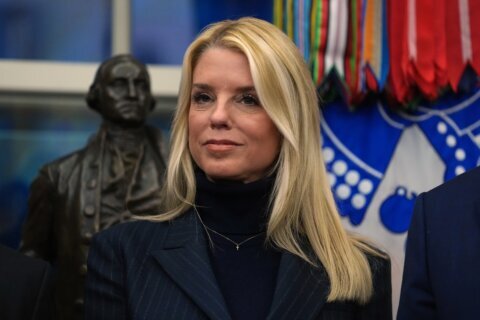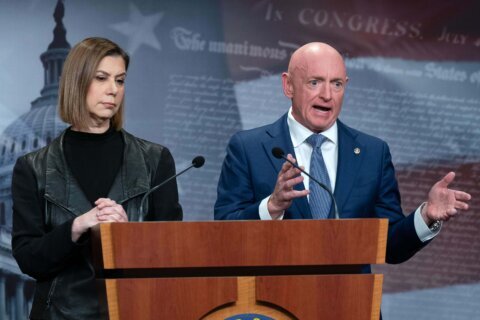Rick Bright, the government virologist who says he was removed from his job for putting science over politics, is speaking out for the first time. Bright says the country is wasting time to develop a national plan to save lives from COVID-19.
The former head of the Biomedical Advanced Research and Development Authority (BARDA) filed a whistleblower complaint earlier this week. Friday, a federal agency found “reasonable grounds to believe” the Trump administration was retaliating against Bright.
President Trump on Wednesday said Bright, “seems like a disgruntled employee who’s trying to help the Democrats win an election.”
“I am not disgruntled,” Bright tells Norah O’Donnell in a “60 Minutes” interview that will air May 17. “I am frustrated at a lack of leadership. I am frustrated at a lack of urgency to get a head start on developing lifesaving tools for Americans. I’m frustrated at our inability to be heard as scientists. Those things frustrate me.”
As early as January, emails show he was sounding the alarm. First, about the critical shortage of N95 masks.
“We see too many doctors and nurses now dying,” Bright told O’Donnell. “And I was thinking that we could have done more to get those masks and those supplies to them sooner. And if we had, would they still be alive today? It’s a horrible thought to think about the time that passed where we could’ve done something and we didn’t.”
Bright claims his persistent warnings caused tension with his bosses at the Department of Health and Human Services. He says it reached a breaking point when he raised concerns over the administration’s embrace of hydroxychloroquine, what Bright called a drug unproven to treat COVID-19 patients.
“You believe you were retaliated against because you raised concerns about hydroxychloroquine?” O’Donnell asks Bright.
“Yes. I do,” Bright says.
And he says he was surprised to learn he’d been reassigned to the NIH to develop diagnostic testing.
“You’d been sounding the alarm about lack of testing platforms,” O’Donnell says to Bright. “This sounded like an important job.”
“That’s an important initiative. Norah, I’m the director of BARDA,” Bright responds. “To take me out of our organization focused on drugs and vaccines and diagnostics in the middle of a pandemic, of the worst public health crisis that our country’s faced in a century, and decapitate the BARDA organization. To move me over to a very small focused project of any scale, of any level importance is not responsible. Didn’t make sense.”
A spokesperson for HHS says this is a personnel matter under review, but that they “strongly disagree with the allegations and characterizations” in Bright’s whistleblower complaint.
See more of Norah O’Donnell’s conversation with Bright, May 17 on 60 Minutes.







